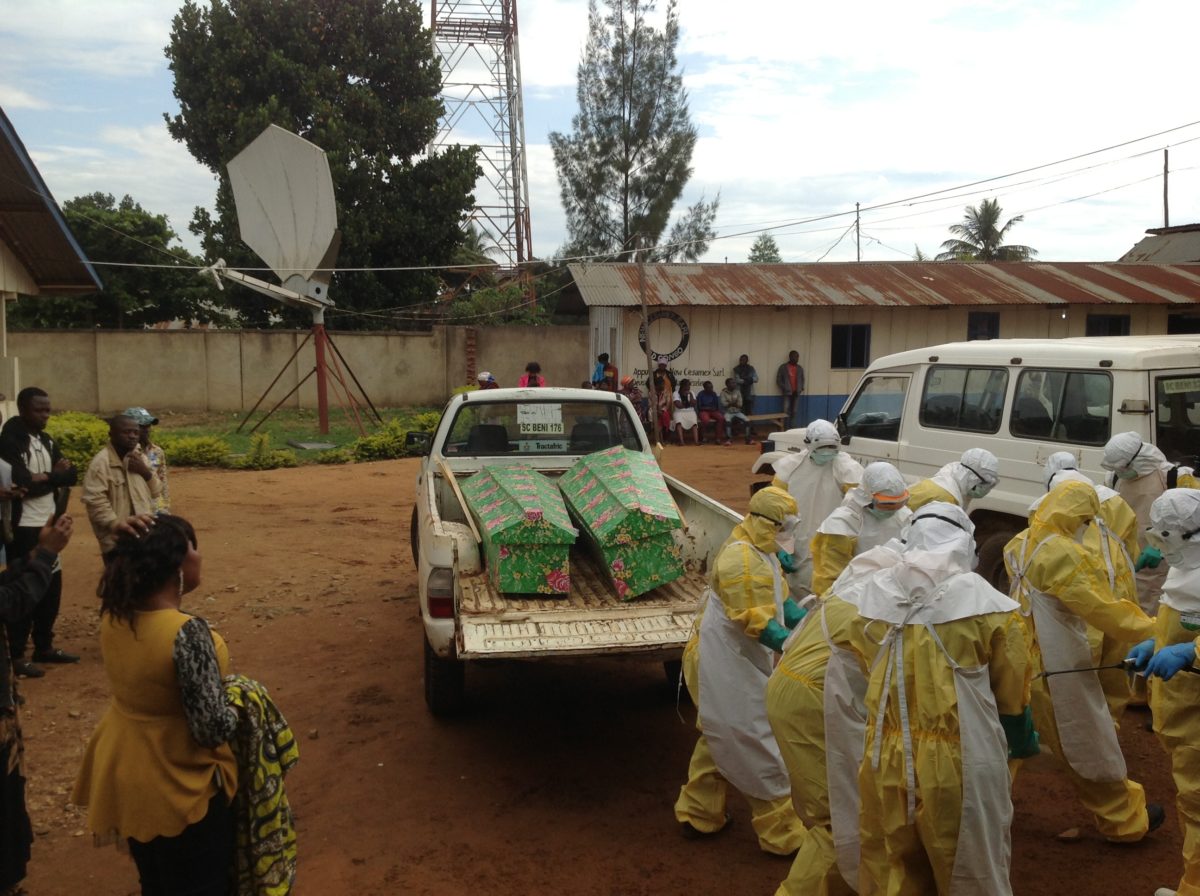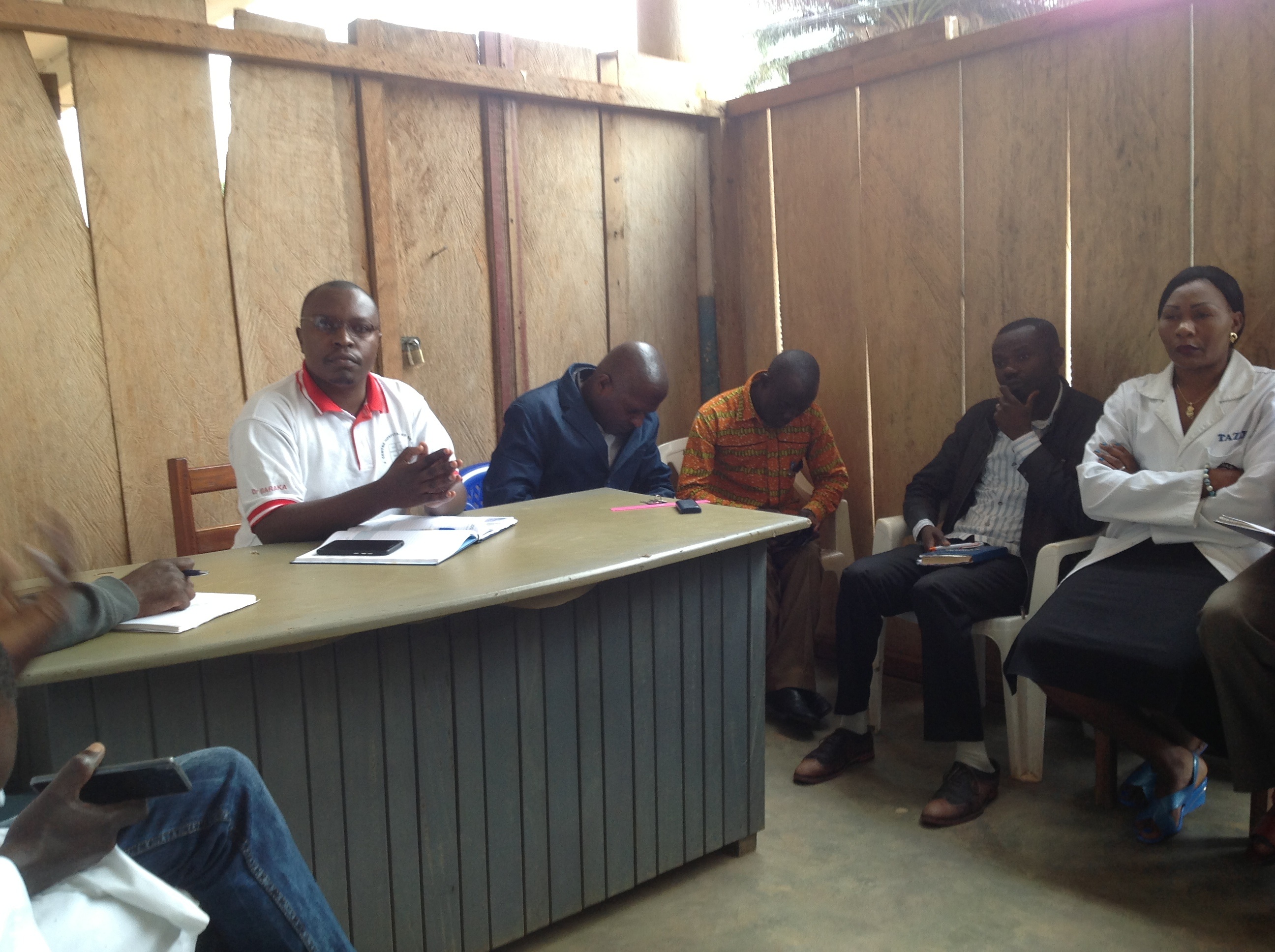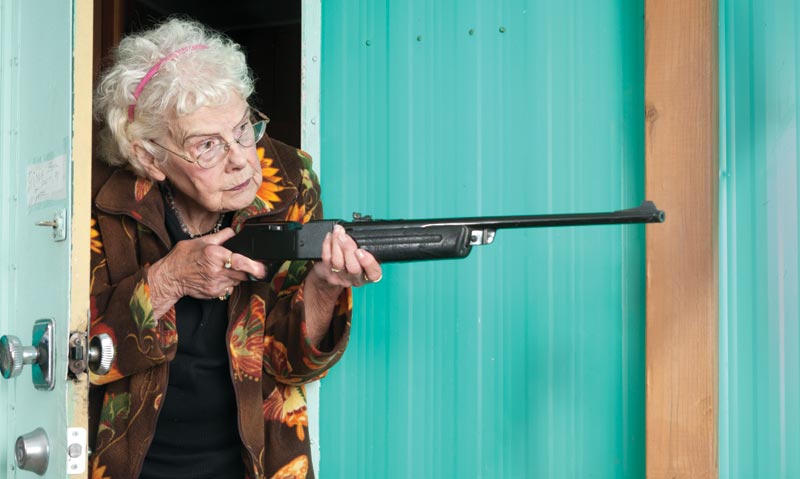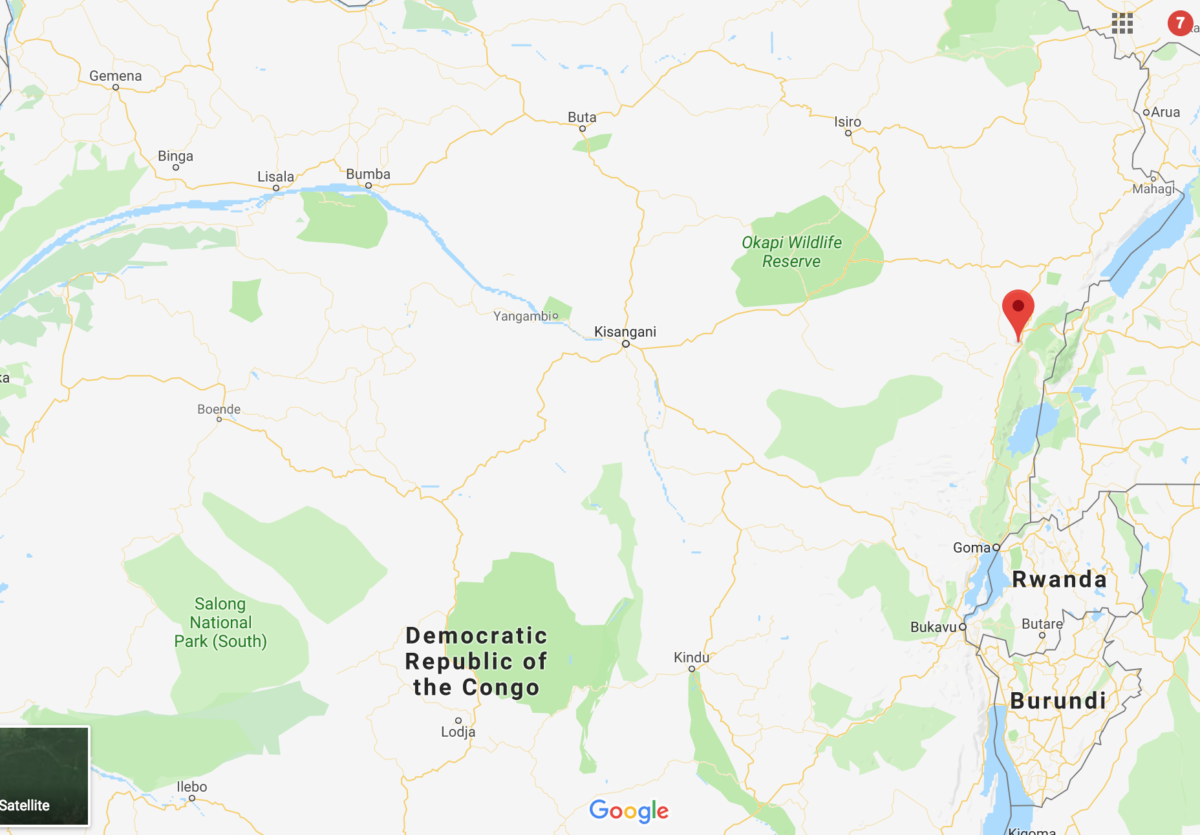Update: Elie Kasindi Kabululu, RN reporting on Ebola Crisis in Beni, Democratic Republic of Congo
Elie Kasindi Kabululu is a nurse who lives and works in the Democratic Republic of the Congo. This is his second post on the current situation addressing the Ebola outbreak on the ground at Nyankunde Hospital in the city of Beni in north eastern Democratic Republic of Congo.
This first image shows health workers of Nyankunde Hospital in protective gear transporting the bodies of two patients who died from complications of Ebola. Since the beginning of the epidemic, this hospital has admitted and treated 27 cases of Ebola, these two patients did not survive. The health care workers have been working under very stressful conditions with limited staffing and supplies due to no government support. The hospital relies on philanthropy from outside the country, I can find no evidence of government.
In the above image, you see a gathering of the hospital staff praying together and sharing the daily challenges they face at the hospital this year during the Ebola crisis. The health care providers are working for free and have not no received salaries since patients being treated are no longer able to pay the fees. Most of them are forced to leave Nyankunde Hospital to work at another hospital covered by the government subvention also treating patients during the Ebola outbreak.
Daily, the Beni people face life-threatening events – the Ebola outbreak and the orchestrated massacres by the rebels of the Ugandan Allied Democratic Forces (ADF) killing and kidnaping people. On December 22, 2018, eight more people were killed in Beni by the Ugandan ADF increasing the difficulties of addressing the outreach to educate and identify new cases of Ebola and treat the people in Beni. This article is by Elie Kasindi Kabululu, RN
Elie Kasindi Kabululu is a nurse who






